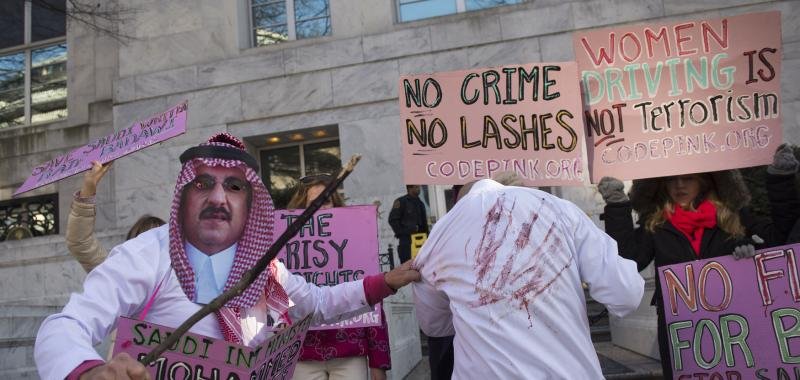Saudi Arabia bans flogging

Saudi Arabia or the Kingdom of Saudi Arabia follows the Sharia law which is Islamic law as its national law. Saudi Arabia occupies about 80 percent of the Arabian Peninsula and borders Yemen, Oman, UAE, Qatar, Kuwait, Iraq, Jordan and Bahrain. Although there is no land border with Bahrain, a bridge connects the two countries.
Slow emancipation of Saudi Arabia:
Mohammed Bin Salman came into power in May 2017. Since then we have been seeing some emancipation in Saudi Arabia. For instance, women are now allowed to drive and women can now access government and health services without requiring consent from their make guardians. Although restrictions still prevail in the Kingdom whereby women still cannot make their own passport and they still need permission for international travel. But in the coming time, we can expect a move towards liberalizing the kingdom.
Why is Saudi Arabia moving towards emancipation?
The kingdom believes that in the future, universities, research and development, tourism, scholars are going to play a major role and they cannot remain an oil-dependent economy forever. So, it has to improve its Human Rights condition before it becomes a knowledge-based economy.
Saudi Arabia & Human Rights:
The ‘Freedom House’ which is a US-based, US- Government funded non-profit non -governmental organization, conducts research around the world based on democracy, political freedom and human rights. Freedom House rates 210 countries and territories in Freedom in the world and 65 countries in Freedom on the Net.
When we look at this research published, we can see that Saudi Arabia does not fare quite well scoring just a 7 out of 100 and also being tagged as “not free”.
Flogging :
As flogging has for long drawn condemnation from human rights groups, the King and his powerful son Mohammad bin Salman had announced that flogging has been abolished from Saudi Arabia and hailing the latest in the series of “human rights advances”.
Previously the courts could order the flogging of convicts found guilty of offences ranging from extra-marital sex and breach of the peace to murder. In future, judges will have to choose between fines and/or jail sentences, or non- custodial alternatives like community service.
The most high profile instance of flogging in recent years was of the case of a Saudi blogger Raif Badawi who was sentenced to 10 years in prison and 1,000 lashes in 2014 for “insulting” Islam although the things which he mostly focused on writing in his blog was about the Saudi Arabia’s government and corruption.
There was a lot of external pressure from the other European countries to decrease his prison term. He was later also awarded the European Parliament’s Sakharov human rights prize the following year.
Although the Saudi Supreme Court had said that the latest reform was intended to “bring the kingdom into line with international human rights norms against corporal punishment” and that this came just days after the Kingdom’s human rights record was again in the spotlight following need of the death from stroke in the custody of leading activist Abdullah al- Hamid. We cannot ignore the fact that this is an advance in the human rights sphere in Saudi Arabia and even the other countries like Indonesia (which had recently introduced even the female flogging squad), Maldives and many other African countries should look up at Saudi Arabia and abolish flogging as it is an inhumane form of punishment and this should, in turn, be replaced with prison sentence or fine.


















